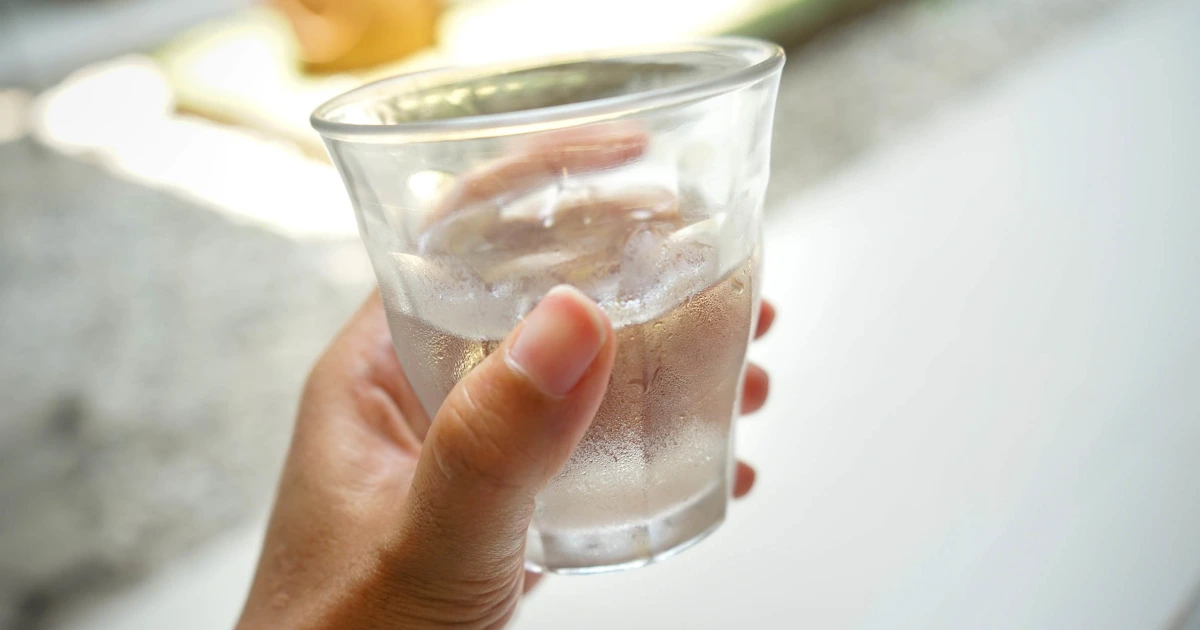
Drinking enough water is crucial to maintaining overall health and proper hydration, which supports just about every bodily function. Water to the body is like oil to a machine — it keeps everything running smoothly, 24 hours a day.
Water helps facilitate the transport of nutrients, lubricates our joints, aids digestion, helps flush out waste and toxins, and keeps our brains sharp. Staying hydrated is also important for regulating blood pressure and supporting the immune system.
It begs the question: How much water should you drink? You might’ve heard the old “eight, 8-ounce glasses a day” rule, but there’s no set recommendation for daily water intake. It varies based on your age, health, activity level and even the weather.
The average healthy adult living in a temperate climate should aim to get between 11.5 cups (2.7 liters) and 15.5 cups (3.7 liters) of fluids per day (from water, other drinks or foods), per the Mayo Clinic.
There’s another factor that plays a major role in how much water we drink: Temperature.
When it comes to the ideal water temperature for drinking, it’s a topic of much debate. Some like it cold, some like it hot, and of course, some will drink anything from the nearest tap.
Many people prefer to drink water from the refrigerator or chilled down with ice cubes, but room temperature and warm water are often touted for digestive benefits. There’s also a cultural element.
While Americans are known for loving ice water, Europeans often prefer to drink water at room temperature and, in Asia, it’s more common for water to be served warm or hot.
Whether you like your water hot, cold, or room temperature, does it make a difference for your health? What’s better for you?
Is it Healthier To Drink Cold or Hot Water?
“It is something that people ask about fairly often … and the temperature of liquids and hydration comes up in clinical practice,” Dr. David Leiman, a gastroenterologist at Duke University School of Medicine, tells TODAY.com.
First, let’s break down what “cold” or “hot” means on the temperature scale — for context, freezing is 32 degrees Fahrenheit, our body temperature is 98.6 degrees and boiling is 212 degrees.
Drinking water generally falls into the following (non-exact) temperature ranges:
Cold water: 40-60 degrees Fahrenheit
Room temperature: 68-75 degrees Fahrenheit
Warm water: 90-110 degrees Fahrenheit
Hot water: 120-150 degrees Fahrenheit
“I would not say that there’s any definitive evidence that one is better than the other,” Dr. Louise Wang, gastroenterologist and assistant professor of medicine at the Yale School of Medicine, tells TODAY.com.
“Staying hydrated is definitely more important than the temperature at which the water is consumed,” says Leiman.
What’s more, the temperature of water will change, almost instantly, after drinking it.
“As soon as we start drinking something, there’s going to be some thermal exchange. In other words, warm or hot (water) is going to cool down as it enters into our body,” says Leiman. “If water is very cold, it’ll begin to warm up as it enters into the esophagus, then, of course, as it goes down into the stomach,” he adds.
After a few minutes, the temperature of the ingested water will normalize so it’s closer to our internal body temperature, as our body tries to maintain an equilibrium. Because of this, it’s difficult to study the health impacts of water temperature on digestion, says Leiman.
“While there’s significant interest in the effects of water temperature on gut health, current research is limited. Most studies come from animal or lab models, making their implications for humans unclear.” Dr. Victor Chedid, a gastroenterologist at Mayo Clinic, tells TODAY.com.
“There are no major clinical guidelines or recommendations on water temperature for gut health,” says Chedid.
It really boils down — no pun intended — to personal preference.
“It depends on the individual, just like the way some people prefer colder temperatures versus warmer temperatures, the same can be said for drinking cold or warm water,” says Wang.
However, certain temperatures might be better or worse for some individuals, says Leiman, and there are downsides when it comes to extremes of temperature on either end of the spectrum.
Drinking Cold Water Benefits and Risks
Cold water can be refreshing, especially on a hot day. “Some people prefer cold water after exercise to help bring their bodies back to a normal temperature,” says Wang.
The sensation of drinking cold water may help you feel cooler as your heart rate comes down. Cold water may also make you feel temporarily more alert or calm if you’re worked up.
However, chugging icy cold water could have downsides. “Water that’s very cold might cause vasoconstriction, where the blood vessels in our bodies start to clamp down and get a little bit tighter,” says Leiman.
In some individuals, this could temporarily influence GI motility or transit time. “Some older studies showed that very cold temperatures might lead to slower motility, reduced emptying and higher retention, meaning there’s more (water) left in the stomach, but this is short-lasting,” says Leiman.
Some people may find that very cold water worsens symptoms of gastrointestinal discomfort or acid reflux.
In a small 2020 study of a dozen men in Japan, researchers investigated how the temperature of water impacted energy consumption. The subjects who drank very cold water did feel less hungry and eat less afterwards, says Leiman, which may be related to gastric motility.
However, there’s no conclusive evidence that drinking cold water is better or worse for your health.
Drinking Hot Water Benefits and Risks
On the flip side, some people find it more soothing to drink warm or hot water. “They might prefer warmer water in terms of soothing their digestive tract or (because) it feels more nourishing when they’re under the weather,” Wang adds.
There is some research suggesting that drinking warm water may be more beneficial than cold water for people with dyspepsia, or discomfort or pain in the upper part abdomen, says Leiman.
People who experience discomfort when swallowing or acid reflux may also find relief from drinking warm or hot water.
But is hot water actually better for digestion?
“There’s no absolute consensus or landmark study we can point to, but there are suggestions from some small studies that drinking warmer or even hot water might accelerate motility and reduce those symptoms (i.e., dyspepsia),” says Leiman.
“There is insufficient evidence to suggest specific temperature-based recommendations for managing gut health,” says Chedid.
The main downside of drinking hot water is that there’s a risk of burning the mouth and throat if it’s too hot, the experts note. Avoid drinking water hotter than 150 degrees Fahrenheit.
There are some small studies that have linked drinking scalding hot beverages with an increased risk of a cancer called esophageal squamous cell carcinoma, says Wang. However, these don’t account for confounding factors like smoking or alcohol use.
“The risk is definitely uncertain at this point … but overall, it’s low,” says Leiman.
Is Hot or Cold Water More Hydrating?
Neither cold nor hot water is more hydrating. “The (temperature) should not affect the ability to hydrate,” says Leiman.
By the time water is absorbed in the small intestine and into the bloodstream, it’s been inside of us at or near body temperature for anywhere from minutes to hours.
The water that’s most hydrating is the water you’ll drink more of — whether that’s cold, hot or room temperature depends on your personal preferences.
“In terms of hydration, it’s more about quantity, so drinking about two liters of water a day … or (enough) so you’re not thirsty and your urine is not dark, but rather, pale yellow,” says Wang.
What Is the Healthiest Water Temperature?
The healthiest water temperature to drink is the temperature that you enjoy drinking and bring you discomfort.
“The most important thing is the amount of water you’re drinking, rather than the temperature,” says Wang.
It may also be a good idea to avoid extreme temperatures. “Very, very cold or very, very hot liquids may have some impact … but again, this is relatively short-lived,” says Leiman.
In addition to drinking enough water, it’s important to eat a healthy, balanced diet, the experts note.



